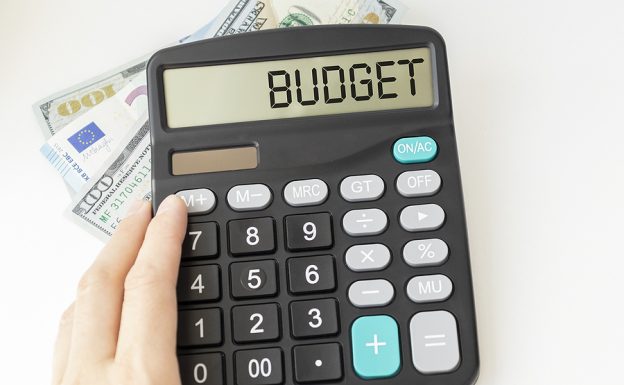
Chancellor Rishi Sunak’s Summer Statement or mini budget, as it’s being called, focuses on COVID-19 recovery policies. He boldly said: “Our plan has a clear goal: to protect, support and create jobs. It will give businesses the confidence to retain and hire. To create jobs in every part of our country.”
But he also gave some stark facts that show the seriousness of the UK’s position. In eight years, our economy grew by 25%. It took only two months for it to shrink by the same amount during the global COVID-19 pandemic. Shocking.
We are looking to the government to steer us through, avoiding the total economic collapse and mass unemployment that many fear.
In his mini budget, Mr Sunak provides some answers and makes it clear that there will be more to say and do as we continue onwards.
The three main areas that we see are employment, reviving the housing market and supporting the leisure and hospitality industries as they open up again.
Employment and the summer 2020 mini budget
There has been a lot of speculation around the end date of the current Coronavirus Jobs Retention Scheme. There are very deep concerns that the end of the furlough scheme will see a large wave of redundancies, as businesses are unable to afford to keep their staff.
The Summer Statement includes a new Job Retention Bonus Programme, which means that employers get £1,000 for every employee they welcome back to work. To qualify for the bonus, they must employ these people continuously until January 2021 and their pay must be a monthly average of £520. No maximum ceiling has been given for this new scheme. This means that if every employer of the nine million furloughed workers claimed the bonus, it will cost £9billion.
There is also support for younger people trying to get into work with the £2bn Kick Start Scheme. The government are going to pay employers the minimum wage and National Insurance Contributions of their workers under the age of 24. They must be employed for at least 25 hours per week and employers are free to make up the wage to a more liveable amount if they want to.
Jobcentres are to see a doubling of their work coach numbers, taking it to 27,000 across the country. And the National Careers Service will receive £32m. These are preventative measures to mitigate the concern that current levels of youth unemployment could more than double by the end of this year.
Apprenticeships and trainees under PAYE
Employers will be able to claim £1,000 for every new 18-24 year old trainee they take on from September. The training programmes can be anything from six weeks to six months. They can also claim £2,000 for every young apprentice they hire.
Getting the housing market moving again
The Stamp Duty holiday for England has been one of the headline grabbers of this Statement. Residential property buyers will now only pay Stamp Duty on homes worth over £500,000. A massive leap from the current threshold of £125,000. Unlike other parts of the mini budget, this starts straightaway and will run until 31st March 2021.
A £40m Green Jobs Challenge Fund has been set up with the aim of recruiting 5,000 people into jobs in environmental charities and the public sector. This compliments the Green home improvements vouchers that will be available to homeowners to make changes to their property that have an environmental benefit. This includes things like double glazing and insulation.
The government will pay two thirds of the overall cost, on jobs that cost up to £5,000. There is a caveat that means vouchers up to £10,000 are available to those with a lower income. This starts in September 2020.
Supporting hospitality and leisure industries
Businesses In these industries will see their VAT bill slashed, from 20% to 5%, until 12th January 2021. The lost revenue amounts to £4.1billion. There are a whole range of small to large businesses that will benefit from this tax saving. It includes hotels, restaurants, cafes, zoos, theme parks, pubs, campsites, caravan sites, B&Bs and cinemas. It’s their decision whether or not they can afford to pass it on to their customers in the form of price cuts or deals. Many will need to plough the money back into their business so that they can keep going.
‘Eat out to help out’ is the Chancellor’s incentive for nervous customers to go back to restaurants, pubs and cafes (with the promise of 50% off meals). From 15th July and all through August, customers will be able to eat out with half off the bill, up to a maximum of £10 per meal. This offer is for participating establishments and only applies on Monday, Tuesday and Wednesday. It covers kids’ meals and non alcoholic beverages, but not any accompanying alcoholic drinks.
Summer 2020 budget roundup
There are more details of the summer statement to digest, things like budgets for PPE in various settings. Here we’ve highlighted the issues that we think will be of most interest to you. We remain open and working to full capacity. Any financial concerns can be discussed over the phone, or by email. Whether you’re a business owner or PAYE taxpayer, if you’re in the mire, we’ll probably be able to throw you a rope.
Simple things, like a tax rebate, can be a godsend when you’re living on a furloughed wage. We invest in a range of tax guides and articles that answer a lot of commonly asked questions. All are written with clarity as the main principle. And if we can’t help you, we can point you in the direction of someone who can. However you’re being financially impacted by the COVID-19 pandemic, there is a way forward.







